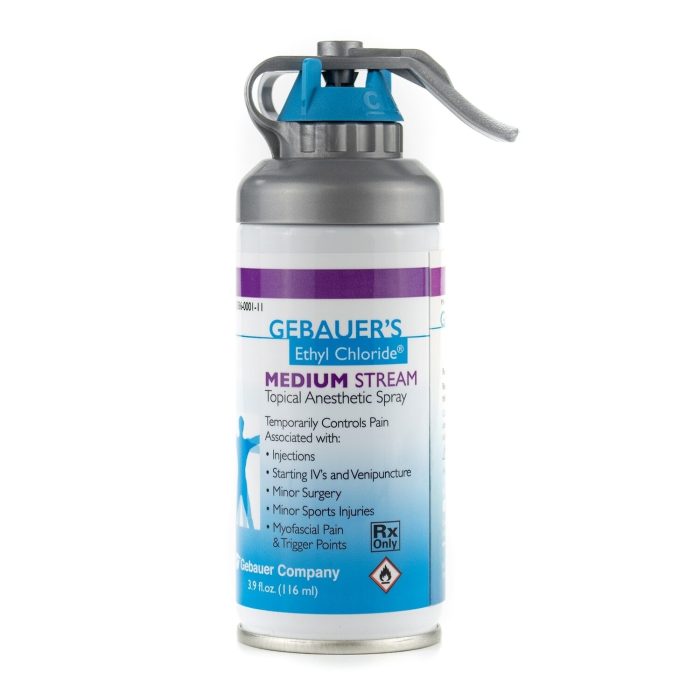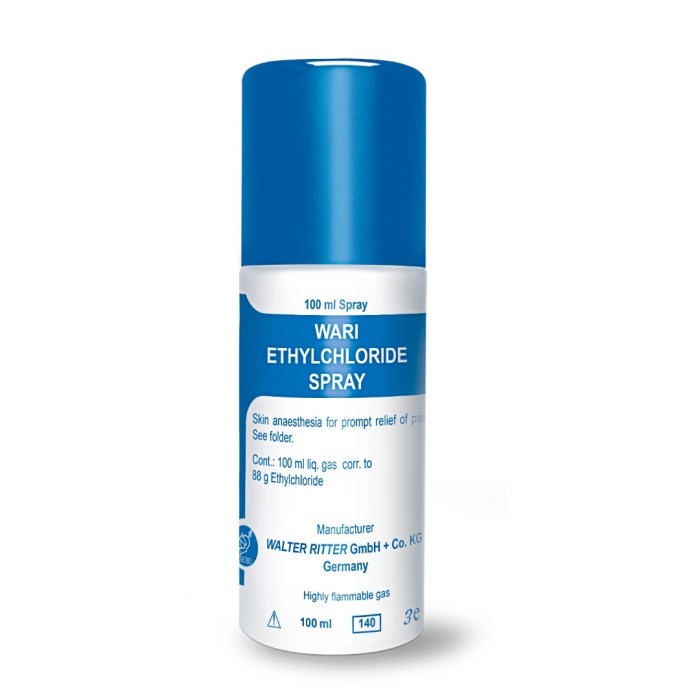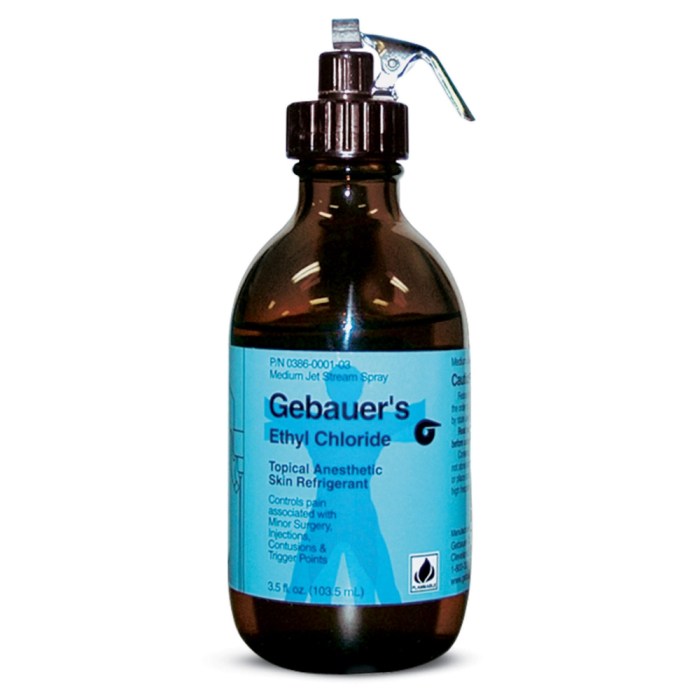Ethyl chloride spray, a mainstay in dentistry, plays a crucial role in pain management and patient comfort during various dental procedures. Its unique mechanism of action, coupled with ease of administration, makes it a valuable tool for dentists. This comprehensive overview delves into the uses, mechanism, techniques, advantages, precautions, and alternatives associated with ethyl chloride spray in dentistry, providing a thorough understanding of its significance.
Ethyl chloride spray, when applied to the affected area, produces a rapid cooling sensation, effectively numbing the tissues and reducing pain sensitivity. This numbing effect facilitates painless injections, cavity preparations, and other minor surgical procedures, enhancing the overall patient experience.
Ethyl Chloride Spray in Dentistry

Ethyl chloride spray is a topical anesthetic commonly used in dentistry to reduce pain and sensitivity during minor procedures. It is a volatile liquid that rapidly evaporates upon contact with the skin, producing a cooling sensation and numbing effect.Ethyl chloride spray is particularly useful in situations where a quick and localized anesthetic effect is desired, such as during injections, cavity preparation, and minor surgical procedures.
It can also be used to alleviate pain associated with toothaches, gum inflammation, and other dental emergencies.
Mechanism of Action and Effects
Ethyl chloride spray works by rapidly cooling the skin and underlying tissues. This cooling effect causes vasoconstriction, which reduces blood flow to the area and numbs the nerves. The anesthetic effect typically lasts for a few minutes, providing sufficient time for the dentist to perform the necessary procedure.In
addition to its anesthetic properties, ethyl chloride spray also has antiseptic and antibacterial effects. This makes it an ideal choice for use in dentistry, where infection control is of paramount importance.
Administration and Techniques, Ethyl chloride spray in dentistry
Ethyl chloride spray is administered using a special spray device that delivers a fine mist of the liquid. The spray is directed towards the affected area, and the patient is instructed to inhale deeply through the nose while holding their breath.
This helps to ensure that the anesthetic effect is localized to the desired area.The dosage and duration of application vary depending on the procedure being performed and the patient’s individual response. It is important to use the lowest effective dose to minimize the risk of side effects.
Advantages and Benefits
Ethyl chloride spray offers several advantages in dentistry:
- Rapid onset of action
- Localized anesthetic effect
- Antiseptic and antibacterial properties
- Ease of administration
- Cost-effectiveness
Ethyl chloride spray can significantly enhance patient comfort during dental procedures, reducing anxiety and pain. It also allows dentists to perform procedures more efficiently and effectively.
Clarifying Questions
What are the primary uses of ethyl chloride spray in dentistry?
Ethyl chloride spray is primarily used for pain reduction and desensitization during dental procedures, such as injections, cavity preparations, and minor surgeries.
How does ethyl chloride spray work?
Ethyl chloride spray produces a rapid cooling sensation upon application, numbing the affected tissues and reducing pain sensitivity.
What are the advantages of using ethyl chloride spray in dentistry?
Ethyl chloride spray offers several advantages, including rapid onset of action, ease of administration, and minimal side effects.
Are there any precautions or contraindications associated with ethyl chloride spray use?
Yes, ethyl chloride spray should be used with caution in patients with certain medical conditions, such as respiratory issues or known allergies to the agent.


